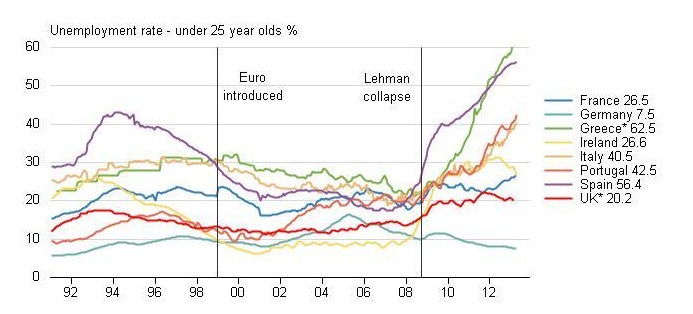Who will bring about political reform, and what are the political incentives for doing it? The question comes from an earlier post. Is there a road-map for exiting from a sub-optimal equilibrium in the way political institutions function? I don’t know the answer.
In Ireland, parties in opposition seem to agree that the lack of accountability of the executive to parliament is a problem. But why would they voluntarily cede the advantages of executive autonomy when in power themselves?
In Greece, the question as to who will introduce real reform is more serious because the problems are so much more pervasive. Behind the massive improvement that has been achieved in the primary fiscal balance, many would still hold that the political system often works badly (inefficiently, ineffectively) and that corruption is a pervasive feature of everyday life. People don’t have much confidence that the institutions of state will act impartially (the keystone of good governance, as Rothstein and Teorell tell us), or even that the rule of law will prevail in the justice system. But individuals can’t change the perverse institutional incentives by themselves. They are stuck with their decidedly dysfunctional political culture, trying to work through it as best they can.
[click to continue…]
by Jon Mandle on June 4, 2013
ASAP – Academics Stand Against Poverty – is an organization devoted to “promoting collaboration amongst poverty-focused academics, by helping them reach out to broader audiences on issues of poverty, and by helping them turn their expertise into impact through specific intervention projects.” It’s only a couple of years old, although its origins are a few years older. The Board of Directors, chaired by Thomas Pogge, includes professors and graduate students, and their Advisory Board includes philosophers, economists, political scientists, and others from around the world.
They have a number of on-going projects that are worth looking at, but they are just launching a new one concerning an issue that I, for one, don’t know much about – illicit financial flows. They estimate that some $1 trillion per year is transferred out of developing countries through corruption, smuggling, money laundering, and corporate tax evasion, and this directly hampers efforts at development and poverty relief. More information about this estimate and this issue is available at Global Financial Integrity. This focus on the relationship between global institutional structures and poverty is, of course, one of Pogge’s main areas of research and advocacy, as is the emphasis on issues that can create an overlapping consensus of different perspectives.
The United Nations Millennium Development Goals are a set of 8 priorities set to expire in 2015. ASAP is pushing to have illicit financial flows become an important piece of the next set of priorities. So they are looking to raise $15,000 to produce a policy paper articulating politically feasible goals concerning these illicit financial flows and to promote their inclusion in the UN’s next development framework. Take a look.
There’s a nice summary of EU plans to address the ‘slow train-wreck’ of youth unemployment here.
But as the author says, ‘where are the jobs going to come from?’

Amidst the litany of country-by-country disasters noted here is this:
‘The chart shows a downturn in Ireland’s youth unemployment, from over 30% in early 2012 to 26% now. This is why:Â “In the past four years, over 300,000 people have emigrated from Ireland; 40% were aged between 15 and 24”.-Â RTE News, 9 May2013′. My own recently-graduated daughter and most of her friends among them.
